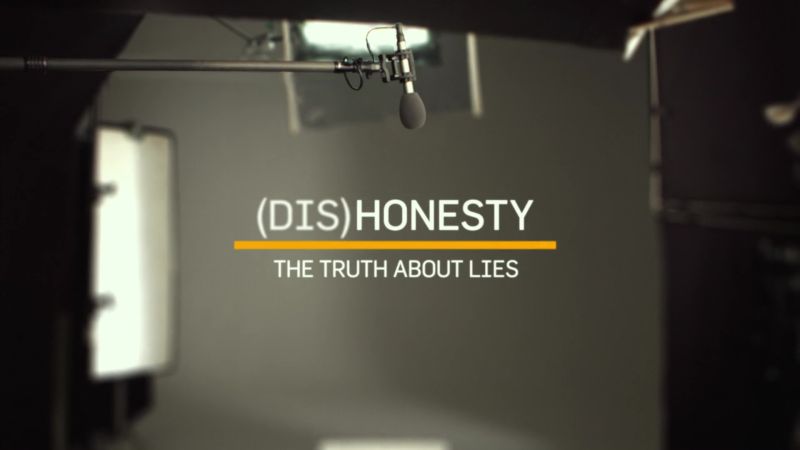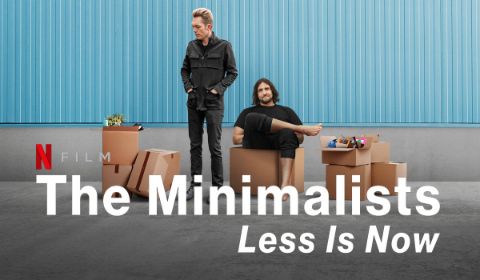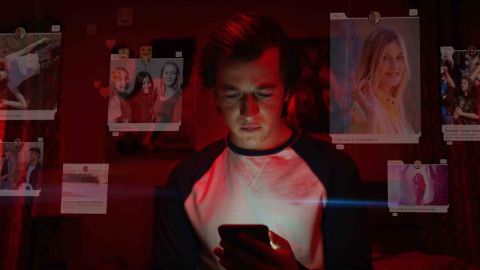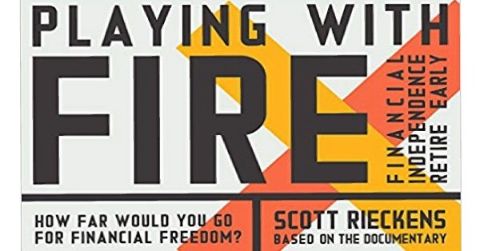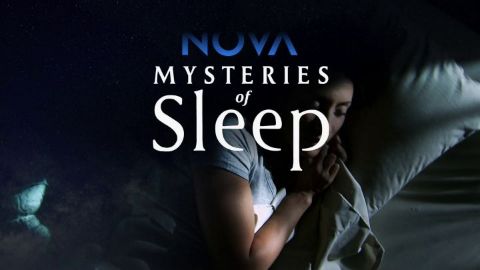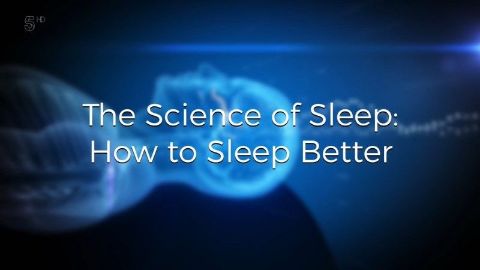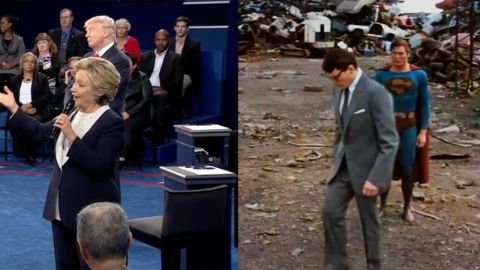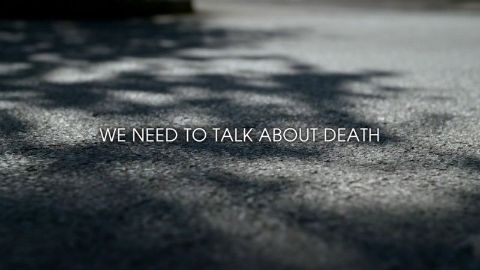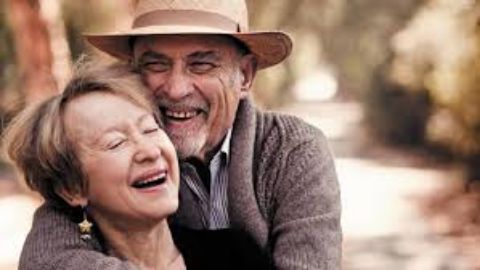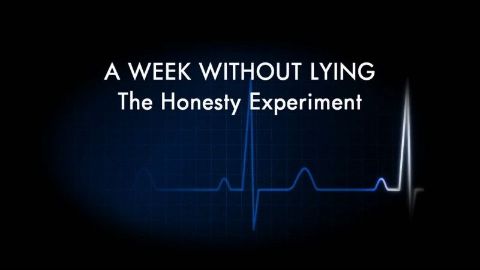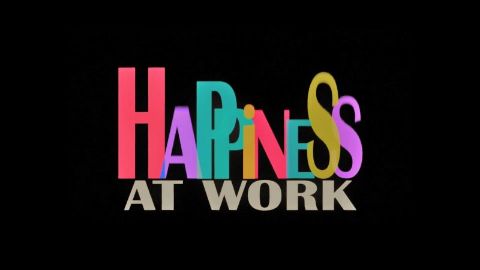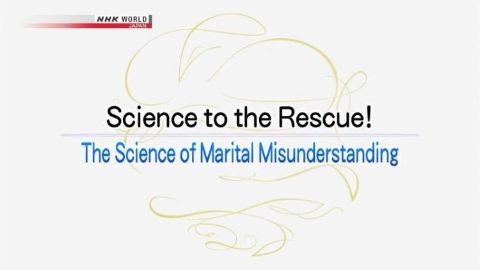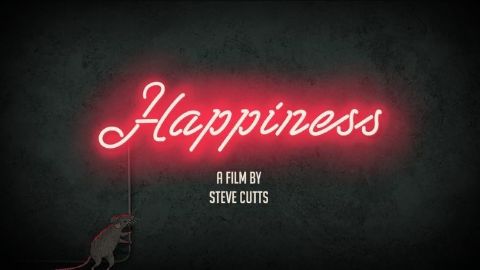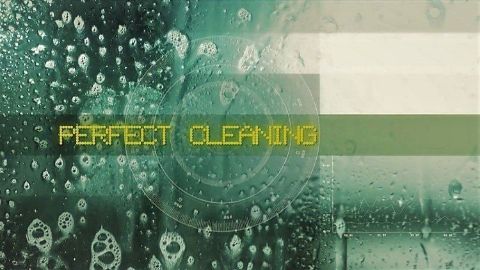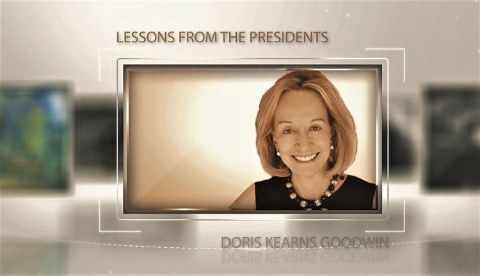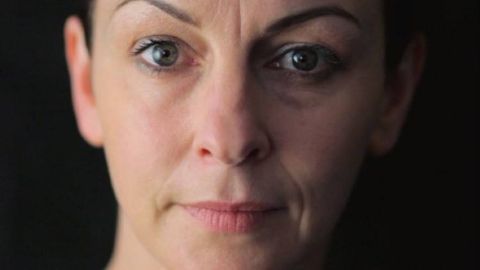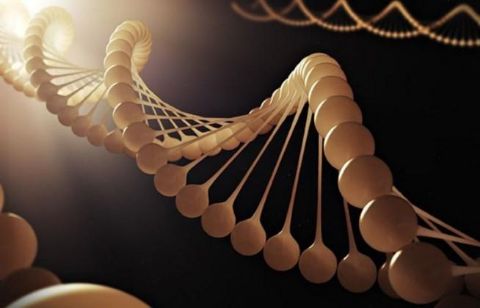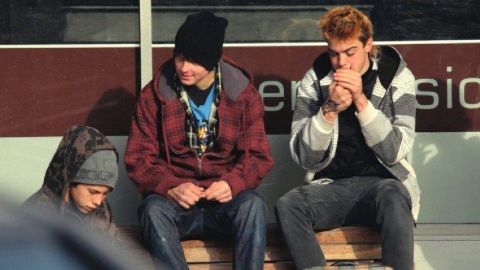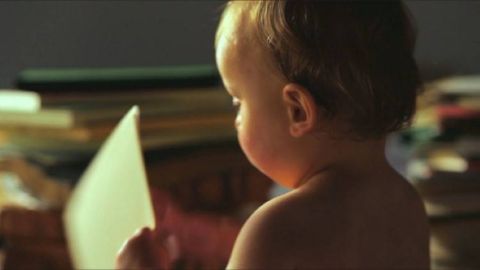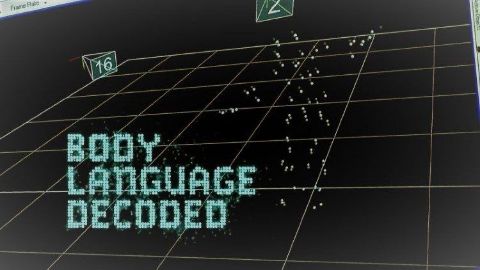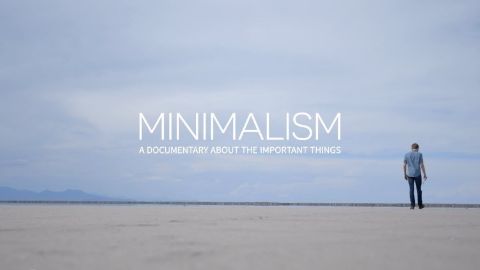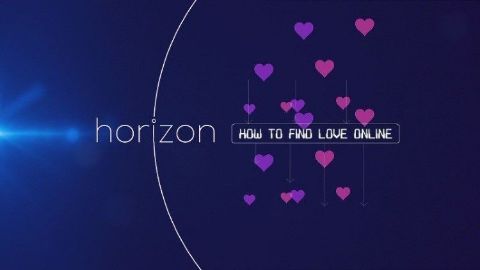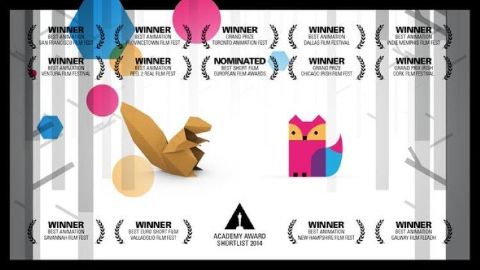LIFEHACK • 37 videos
"(Dis)Honesty – The Truth About Lies" delves into the intricate world of human deception, exploring the ubiquity of lying in our lives. Psychologist Dan Ariely and his team dissect the mechanisms behind dishonesty, from white lies to significant frauds. Through personal accounts, the documentary exposes the rationalizations of individuals, including a Wall Street trader and a cheating spouse, shedding light on the justifications people invent for their deceit. Ariely's research uncovers the complexities of dishonesty, revealing the blurred line between harmless lies and catastrophic deception, questioning our collective morality, and exploring potential solutions to this epidemic of cheating that erodes public trust.
2015 • Lifehack
It began with bloomers. Then came spandex. Now we sport leggings and other activewear everywhere. How did comfy, casual clothing go mainstream?
They've built a movement out of minimalism. Longtime friends Joshua Fields Millburn and Ryan Nicodemus share how lives can be better with less.
2021 • Lifehack
This documentary-drama hybrid explores the dangerous human impact of social networking, with tech experts sounding the alarm on their own creations.
2020 • Lifehack
Playing with FIRE captures the truths and dispels the myths of the growing culture known as FIRE: Financial Independence Retire Early.
2019 • Lifehack
Why do we sleep? And what does sleep have to do with memory, trauma, and our emotions? From fruit flies to whales, virtually every animal sleeps. But why? Why do we need to spend nearly a third of our lives in such a defenseless state? Scientists are peering more deeply into the sleeping brain than ever before, discovering just how powerful sleep can be, playing a role in everything from memory retention and emotional regulation to removing waste from our brains. So why are we getting so little of it?
The British Sleep Council says that 70 per cent of people in the UK do no get enough sleep. Gaby Roslin and Amir Khan present the first of two programmes in which they aim to put things right, applying the latest science to some of the worst sleepers. They include a sleep deprivation experiment, as well as help for an extreme snorer and a man who suffers from night terrors. A woman who has restless leg syndrome, and a man who has had chronic insomnia for 20 years. The sleep deprivation experiment continues, setting up a mini casino to test for risky behaviour, pain resistance and emotional control. Finally, as the subjects reach the final hours of the challenge, the experiment begins to take its toll as the participants' emotions go into overdrive, with one threatening to quit altogether.
2019 • Lifehack
A documentary that explores how we repeat trauma. It focuses on the childhoods of significant American politicans. It explores the idea that aggressors were originally victims. And that our 'leaders' are deeply wounded and feel powerless. All footage is credited and used under the principles of Fair Use. This video work is both transformative and educational.
2017 • Lifehack
Dr Kevin Fong makes a personal journey through the moral questions about death that face not just the medical profession, but each and every one of us. The question of how we die is a question that all of us must face, and yet we avoid talking about it. Modern medicine is focused on saving lives. Amazing technical advances have increased doctors' ability to treat a wide range of life-threatening diseases, meaning many more people live longer lives. Life expectancy has surged, and we regard death as something to be battled. It is common for the medical system to throw everything into treating patients right to the very end. But in our attempts to defeat death, the question is this - are we over-medicalising death and the final years of life at the expense of providing better palliative care that would result in a better quality of life? Is it time to reset the system, and learn how to die a better death? Kevin meets medical professionals who are at the heart of these dilemmas, as well as people who are right now facing up to the question of how to die a better death.
At some point in everyone's life, thoughts turn to death. A subject that most people like to skirt around, it is tackled head on in this award-winning documentary from director Patrick Shen. Shen identifies death as one of the underlying factors in causing modern day malaise and examines various responses to the specter of death as it looms large over our heads. Positing the theory that death is inherently buried in everything we do, Shen lets his theory unravel in an interesting and informative manner. Travelling the globe, the director pools his ideas from an array of sources, including expert commentary from scholars such as Ernest Becker and Sheldon Solomon.
2003 • Lifehack
Bestselling author, popular scholar and existentialist Irvin D. Yalom is one of the most influential living psychotherapists. This cinematic feature is more than a classic biography. Together with Dr. Yalom we travel in an existential journey through the many layers of the human mind while he shares his fundamental insights and wisdom. Dr. Yalom's books sold millions of copies worldwide and critics describe him as: mind-bending, stunning, inspiring, haunting, life-changing.
2014 • Lifehack
Deception is an integral part of human nature and it is estimated we all lie up to nine times a day. But what if we created a world in which we couldn't lie? In a radical experiment, pioneering scientists from across Europe have come together to make this happen. Brand new technology is allowing them to rig three British people to make it impossible for them to lie undetected. Then they will be challenged to live for a whole week without telling a single lie. It is a bold social experiment to discover the role of deception in our lives - to investigate the impact lying has on our mental state and the consequences of it for our relationships, and to ask whether the world would be a better or worse place if we couldn't lie.
Is work oppressive? As illustrated by the recent wave of suicides in major companies, a profound malaise exists. Constant urgency, excessive workloads, lack of training, disarray in corporate organization, management by terror; the 21st Century workplace is continually leaving new victims. Why?
2015 • Lifehack
In Japan, one couple gets divorced every 2 minutes. Often, the wife initiates the split. Many women say their partners don't understand their feelings, while many husbands seem unaware of the daily stress this can create. The latest research suggests that common marital misunderstandings are rooted in differences between the male and female brain. The problems couples experience today are the result of millions of years of evolution. This program uses findings from neuroscience to explore the issue, and suggests ways for couples to strengthen their bonds.
2017 • Lifehack
Science explains why some cleaning methods work better than others, and that we do not need to purchase multiple cleansers when a few basic ingredients from our pantry and our local pharmacy can get the entire house spic and span.
S1E1 • The Science of Everyday Living • 2011 • Lifehack
Through her unique understanding of some of our greatest presidents, Doris Kearns Goodwin, writer and presidential biographer, provides leadership lessons we all can learn from in our never-ending pursuit to live our fullest and most successful lives.
S1E7 • Curiosity Retreats: 2016 Lectures • 2016 • Lifehack
This episode looks at the effects of modern life and aging , how excessive cleanliness affects asthma & allergies, how poverty gets under the skin to cause lifelong damage, the physical effects of social isolation, and predicting mental illness and Alzheimer's by just looking at the back of people's eyes. Plus the latest research and where the research is going next.
S1E4 • Predict my Future: The Science of Us • 2016 • Lifehack
The Dunedin Study has identified a fundamental developmental mechanism that completely rewrites the nature versus nurture argument. It is a genetic switch which is thrown by life events , nature loads the gun but nurture pulls the trigger. This episode tracks the hunt for the mechanism using three specific examples - violence in men, depression, and cannabis induced schizophrenia
S1E3 • Predict my Future: The Science of Us • 2016 • Lifehack
Troubled teens , why some go bad and others come right. What happens when young people run off the rails? Youth offending is very common , almost everyone does dumb things and many of us break the law. However youth offenders consist of two core groups; life present offenders (people who are going to continue offending regardless), and people who given the right conditions will return to become mainstream citizens.
S1E2 • Predict my Future: The Science of Us • 2016 • Lifehack
Meet the most scientifically studied people in the world. A group of 1,037 New Zealanders born in one city have been followed since their births in 1972. Members are now dispersed around the globe but 96% of the original group are still taking part - an extraordinary achievement in such a long running study.
S1E1 • Predict my Future: The Science of Us • 2016 • Lifehack
Dr. Nancy Etcoff, a leading researcher in the field of positive psychology, reveals why it is crucial to understand exactly how our mental and physical health is benefited by emotions like happiness and joy, and how we are affected by anxiety and depression.
5/10 • Curiosity Retreats: 2014 Lectures • 2014 • Lifehack
Take a journey deep inside the intriguing world of non-verbal communication. As human beings, our bodies communicate our inner emotions and feelings in ways that can often be easily seen by others, but at other times, are barely visible. On every continent and in every ethnicity, expressions of emotions such as happiness, surprise, anger and fear are universally recognized. These expressions are hard-wired into our facial muscles for reasons that have everything to do with human evolution and survival of the species. To the trained observer, the way people move can be more revealing than the things people say. Body Language Decoded features interviews with some of the world’s leading experts in human communication.
2017 • Lifehack
How might your life be better with less? MINIMALISM: A DOCUMENTARY ABOUT THE IMPORTANT THINGS examines the many flavors of minimalism by taking the audience inside the lives of minimalists from all walks of life—families, entrepreneurs, architects, artists, journalists, scientists, and even a former Wall Street broker—all of whom are striving to live a meaningful life with less.
2016 • Lifehack
Adam Curtis - HyperNormalisation Our world is strange and often fake and corrupt. But we think it’s normal because we can’t see anything else. HyperNormalisation - the story of how we got here.
2016 • Lifehack
Dr Xand Van Tulleken is single and looking for love. Mathematician Dr Hannah Fry wants to use him as her guinea pig to test whether the algorithms that dating sites use to match people actually work. While Hannah builds a dating site, Xand meets the scientists investigating online dating - and learns what pictures to use and what to write in his profile. He tries out a 'bot' that has automated a swiping app and has an MRI scan to find out whether his brain is equipped for love. 50 members of the public take part in some mini experiments at a date night - and Xand goes on various dates to test whether the algorithm is better than him choosing randomly.
Join NOVA on a mathematical mystery tour—a provocative exploration of math's astonishing power across the centuries. We discover math's signature in the swirl of a nautilus shell, the whirlpool of a galaxy, and the spiral in the center of a sunflower. Math was essential to everything from the first wireless radio transmissions to the prediction and discovery of the Higgs boson and the successful landing of rovers on Mars. Astrophysicist and writer Mario Livio, along with a colorful cast of mathematicians, physicists, and engineers, follow math from Pythagoras to Einstein and beyond. It all leads to the ultimate riddle: Is math a human invention or the discovery of the language of the universe?
Some of us learn best in the classroom, and some of us ... well, we don't. But we still love to learn, to find out new things about the world and challenge our minds. We just need to find the right place to do it, and the right community to learn with. In this charming talk, author John Green shares the world of learning he found in online video.
You can't help it; sometimes, you just get a bad feeling about someone that's hard to shake. So, what's happening in your brain when you make that critical (and often lasting) first judgment? Peter Mende-Siedlecki shares the social psychology of first impressions -- and why they may indicate that, deep down, people are basically good.
This animated video describes the six universal Principles of Persuasion that have been scientifically proven to make you most effective based on the research in Dr. Cialdini’s groundbreaking book, Influence.
A short Humanist animation about death, afterlife, and living in the here and now.
Ten years of research and 500 face-to-face-interviews led Richard St. John to a collection of eight common traits in successful leaders around the world.
For love or money? Based on hundreds of interviews and his personal experience, Richard St. John suggests that passion, not money, is one of the key drivers of success.
Nothing comes easy, and behind every success are hours of plain hard work. Sounds intimidating, but Richard St. John proposes a simple shift in attitude to turn mediocre into incredible.

